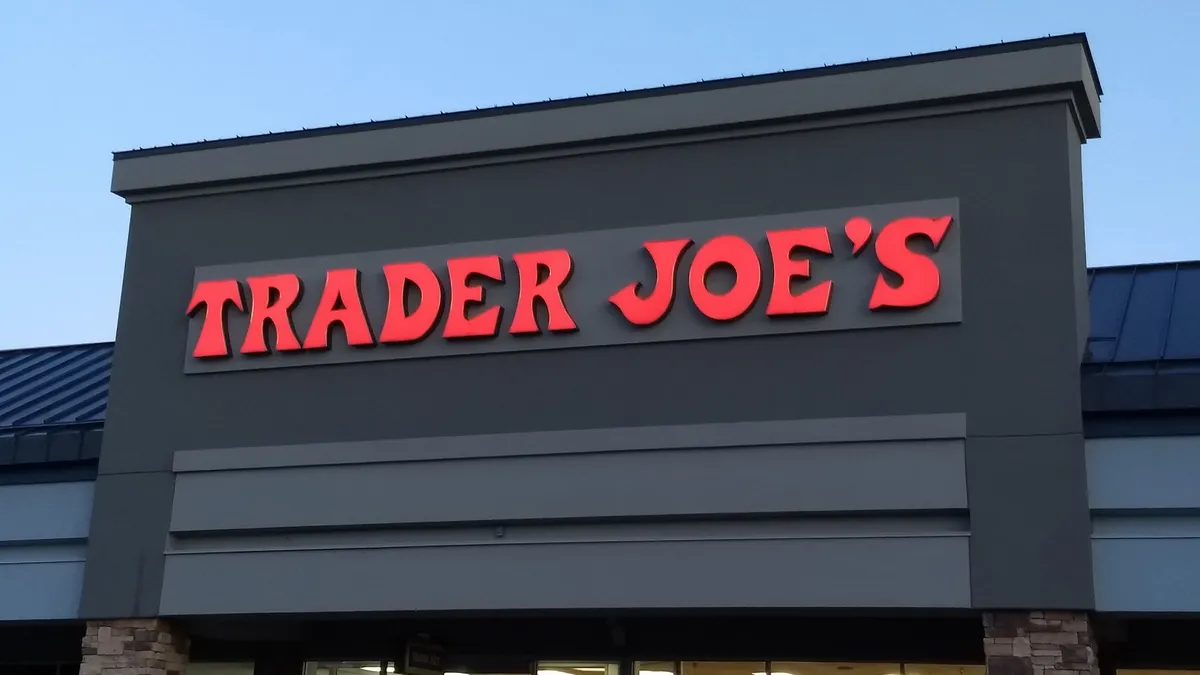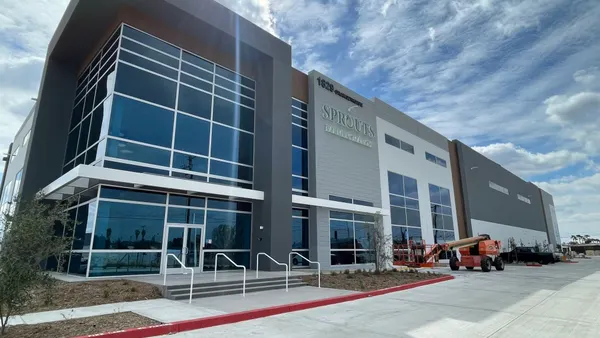Dive Brief:
- Trader Joe’s United, the fledgling union formed to organize employees of the grocery chain, has filed unfair labor practice charges against the grocer.
- The union is accusing Trader Joe’s of refusing to bargain in “good faith” with the union within the previous six months, according to charges filed with the National Labor Relations Board. Trader Joe’s did not respond to a request for comment.
- Bargaining is underway for the two stores that recently voted in favor of unionization.
Dive Insight:
In a series of tweets, Trader Joe’s United described hiccups with the recent bargaining endeavors.
The grocer, according to the union, rejected its proposals for “paid release,” which would have allowed bargaining committee members to be paid to bargain and to hold negotiations outside of work hours.
“Some of our bargaining committee members wanted to attend, but could not afford to miss work,” the union tweeted, noting that some members sacrificed their wages to attend and some used their own money to fly to Massachusetts for bargaining.
Trader Joe’s also rejected proposals from the union to rely on joint bargaining — bargaining one contract to cover both stores — and using Zoom to reduce the amount of travel necessary, per the tweets.
“The company rejected these proposals, claiming that our stores are ‘too different’ to be covered by the same contract, despite the fact that we have the same job, same terms of employment, and can even transfer between stores,” the union said, adding it plans to continue advocating for joint bargaining.
Bargaining started last Thursday after Trader Joe’s requested a delay from the original Oct. 31 start date. Trader Joe’s showed up on the first day without proposals or an opening statement to say it wants working conditions to remain the same and then, on the second day, brought a written proposal reiterating its stance, the union said.
“The company argued that our Handbook’s policies (which can be changed/eliminated at any time) are sufficient to take care of the crew’s needs,” the union said.
Trader Joe’s then refused to meet on the agreed-upon Nov. 7-8 dates to continue bargaining, the union said. Negotiations will pick back up at the end of the month on Nov. 21.
Trader Joe’s workers at a store in Hadley, Massachusetts, and one in Minneapolis voted earlier this year to unionize under Trader Joe’s United. Those votes came on the heels of complaints from workers that the grocer has offered “mysterious or inconsistent” performance reviews, cut retirement benefits, provided inadequate time off and put employees’ safety at risk.
The unionization push at Trader Joe’s comes at a time when employees at several major retailers, including Starbucks, Amazon and Apple, have succeeded in unionizing. But in a setback to those efforts, Trader Joe’s workers at a New York City store voted against unionizing in late October.
Trader Joe’s has previously faced accusations that it’s trying to head off unionization. Workers at the Hadley store who helped form Trader Joe’s United said in May in a public letter to the grocer’s CEO that the company has discouraged workers from unionizing. The United Food and Commercial Workers International Union in August accused the grocer of “union busting” after it closed a New York City wine store where workers were discussing plans to try to unionize.
Unfair labor practice charges against employers can be common when unionization efforts are underway, with the prevalence of the charges generally increasing as the size of the bargaining unit gets larger, according to the Economic Policy Institute. For a bargaining unit representing more than 60 employees, more than half (54.4%) of employers have been charged with violating federal law, according to an analysis by the independent, nonprofit think tank.
Employers have a range of legal and illegal tactics to discourage unionization, and there’s a growing trend of employers hiring “union avoidance” consultants, the Economic Policy Institute noted.
After steadily falling for the last five years, the number of charges alleging unfair labor practices has increased this year, according to the NLRB. More than half of all unfair labor practice charges are withdrawn or dismissed, and for cases where an investigation finds “probable merit,” most get settled, per the NLRB’s website.












